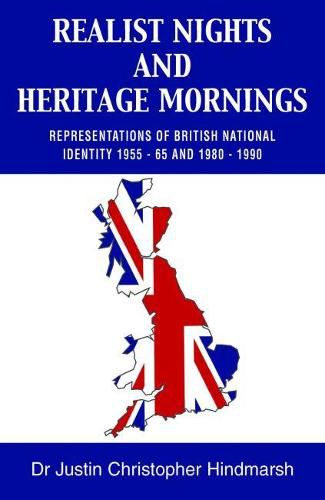Readings Newsletter
Become a Readings Member to make your shopping experience even easier.
Sign in or sign up for free!
You’re not far away from qualifying for FREE standard shipping within Australia
You’ve qualified for FREE standard shipping within Australia
The cart is loading…






This title is printed to order. This book may have been self-published. If so, we cannot guarantee the quality of the content. In the main most books will have gone through the editing process however some may not. We therefore suggest that you be aware of this before ordering this book. If in doubt check either the author or publisher’s details as we are unable to accept any returns unless they are faulty. Please contact us if you have any questions.
Cinema was perhaps the most significant art form to emerge during the 20th Century and whilst initially seen as pure entertainment, it developed and spoke to a post-imperial and increasingly post-industrial Britain now unsure of itself, its identity and its place in the world.
Originating from the author’s PHD thesis, this book compares and contrasts two distinct schools of British Cinema: Social Realism from 1956 to 1963 and the Heritage films of the 1980s. As each genre is explored, the book makes the proposition that British national identity was largely a historic construct, created and promoted to further imperial ambition.
$9.00 standard shipping within Australia
FREE standard shipping within Australia for orders over $100.00
Express & International shipping calculated at checkout
This title is printed to order. This book may have been self-published. If so, we cannot guarantee the quality of the content. In the main most books will have gone through the editing process however some may not. We therefore suggest that you be aware of this before ordering this book. If in doubt check either the author or publisher’s details as we are unable to accept any returns unless they are faulty. Please contact us if you have any questions.
Cinema was perhaps the most significant art form to emerge during the 20th Century and whilst initially seen as pure entertainment, it developed and spoke to a post-imperial and increasingly post-industrial Britain now unsure of itself, its identity and its place in the world.
Originating from the author’s PHD thesis, this book compares and contrasts two distinct schools of British Cinema: Social Realism from 1956 to 1963 and the Heritage films of the 1980s. As each genre is explored, the book makes the proposition that British national identity was largely a historic construct, created and promoted to further imperial ambition.